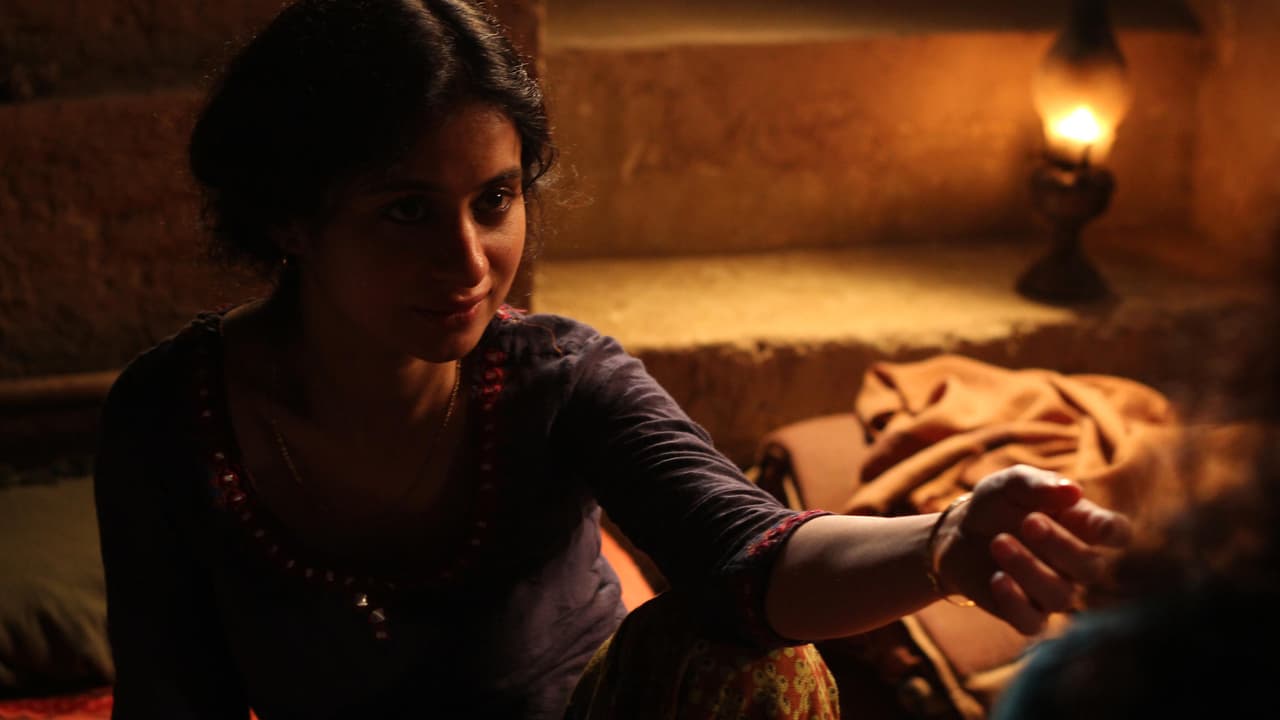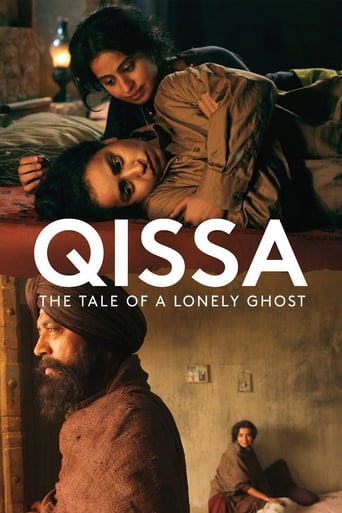Steinesongo
Too many fans seem to be blown away
Evengyny
Thanks for the memories!
Softwing
Most undeservingly overhyped movie of all time??
Beanbioca
As Good As It Gets
notofdisdimention
A well-written script with an honest performance by the cast, the story telling has an Indian folk tale touch.Tillotama Shome is great with her performance, the scenes with the mother and father are perfect and heart touching, and it is because of her performance that this movie comes out as a subtle art film rather than a Yash raj melodrama.The movie talks about the how the desire of having a boy child was prevalent in the past and to what level the people can be obsessed with such pity things and destroy their and others happy peaceful life.Do watch and support the movie, the movie perfectly encapsulates the sense of an Indie classic(that is a new story line) and not an artificial work like "ship of Theseus".
Saumyadeep Dutta
What if you were the prisoner of desires? What if your construction was nothing but a quicksand of lies? All you gain is a house of cards. A ghost, so lonely by the defeat of his realism walks down the Punjab territory. Alas, the land gets bisected by a border, so violent! Such is the tale of Tillotama Shome's Kanwar being morally stabbed behind the curtain of sexuality. Anup Singh's Indian-German film 'Qissa-The Tale of a Lonely Ghost' is a cinematic sensation that goes down deep into your subconscious. In the hour of Partition, a Sikh resident of the now Pakistan seeks shelter in Punjab, India with his wife and three not so desired for daughters. Thus is what Irrfan Khan's Umber Singh, wishing for a boy out of Mehar's (Tisca Chopra) womb. When the fourth daughter is born, he persists on bringing her up as a son. Kanwar, in disguise of a son prepares herself as a boy. An adolescent love gets injected in the form of Neeli (Rasika Dugal) followed by a marriage. The beginning of a new relationship calls for the end of what was so far a sexual illusion.Director Anup Singh does true justice in maintaining the patience of being brave as he successfully makes the non-chronological phantasm work in a meter of realism as well as surrealism. The second half of the story takes a sudden realistic turn as it is revealed in the posters of the film. If realism is the false fall, surrealism gives the definite land in the plot.With the evergreen brilliance of Irrfan Khan, the acting has reached a summit of what one can hardly comment about. The soliloquy presented to the dead sands is like a perpetual cycle of fate that cries in the tone of,"Naa aadmi, naa aurat. Naa jeev, naa pret." Tillotama Shome, famous for her serious portrayals has once again nourished the excellence of her virtue. With an innocent boldness and an intense artistry, her character is like a flame, the delusion of which stays on even after it gets extinguished. Tisca Chopra and Rasika Dugal has also contributed their magnificence in sculpting this master class.A warm tone cinematography throughout the film along with the immaculate sound mixing has successfully provided for balancing the tension with the 'what happens next' feeling. A well edited synchronization with the proper synthesis of music has given the film a strong circumference.The audience leaves the theatres with some serious question marks haunting their grey scale. The well cooked delicacy of a sexually exposed Kanwar with the fog of Neeli's existence is the best abstract that gets nailed into your brain. The posters came out with a Mira Nair quote terming the film as a "masterpiece." 'Qissa-The Tale of a Lonely Ghost' is not a onetime watch. Watch, leave and watch again
momtazbh
Part fairytale, part fantasy, part folklore; Qissa weaves together historical ties, family bonds, issues of identity, belonging and the supernatural, to create a film that takes you on a journey that's unlike any cinematic adventure you've embarked on before.Set in the Punjab and beginning at the start of Independence in 1947, the film is a metaphor for many of the experiences that Indians and Pakistani's faced during this bleak period, but rather than presenting the situation from a political perspective, it focuses on the tale of one family and the deep, dark secret that haunts them.The moment she is born Kanwar's father declares her to be a boy, bringing her up as his son. With such a lie there comes burden and over the years we see Kanwar develop and grow, trying to come to terms with his/her alternate gender while the father figure (played by Irrfan Khan) deals with the weight of his actions.From the moment Qissa begins, through to its conclusion, every part of your senses are engaged. Visually the production is stunning. The landscape of the Punjab is depicted as beautiful yet barren. The washed out colourisation adds an ethereal feel, giving the film its fairytale quality. The haunting soundtrack is the soul of the movie, melodic yet mystical, it alludes to the unearthly feelings that engulf each character. Emotionally this films entwines you physically and mentally - there's an urgency to reach out onto the screen and put your arms around Kanwar, knowing there is no one she can turn to, and morally it questions your beliefs about what is acceptable when it comes to upholding family values.To pick out an actor and praise them for their performance would make the others seem insignificant when in truth, every member of this ensemble cast is worthy of a mention. It's not as easy as saying 'the best performance of Irrfan's career' or 'Tillotama Shome masterfully plays a boy and a girl': these are actors who are defining the boundaries of acting itself, presenting to what is largely a conservative audience in Indian, new possibilities.The casting of Irrfan Khan, a Muslim actor who does not speak Punjabi into such a robust Sikh character while Tillotama who plays Kanwar is herself Bengali, again taking on a language that was unfamiliar to her, gives this film an additional layer of intelligence. The language used in the film alters in dialect to reflect different time periods, which itself brings another dimension to contemporary Punjabi filmmaking.One of the highlights of Qissa is the tender depiction of friendship and love between Kanwar and Neeli, the girl that he marries. The portrayal of the warmth, respect and desires the two women have for each other is both honest and sensitive.The folklore element of the movie is at times hard to spot because it feels so natural. Even though the subheading to the film is 'The Tale Of A Lonely Ghost', when you are watching it you don't always recognise the spectres and shadows that accompany each character. Dealing with the supernatural may seem far-fetched, yet because it's done so in context, at no point do you question the authenticity; it is engrained in the script.12 years in the making, Anup Singh's courageous production Qissa is part funded by Indian, German, French and Dutch investors and as a result it contains the essential ingredients that will make this a crossover success for Western and non-Western audiences. Pushing the boundaries of Indian and Punjabi pictures, it's an example of cinema that has the power to define modern filmmaking.
richa-sri
I had a chance to see the film "Qissa" while it screened at the South Asian Film Festival in New york. Not knowing the premise of the film, what struck me most was the depth of the different characters portrayed in the story. Actors Irfan Khan and Tillotama Shome displayed a beautiful and sensitive chemistry playing the father-daughter duo, replete with complex emotional struggles and seemingly unsurmountable conflicts. The interpersonal relationships between the characters were touching and real despite the darkness that surrounded them. Tillotama's gender-transcending portrayal of a complex and conflicted "Kanwar" was seamless and simply blew me away!

